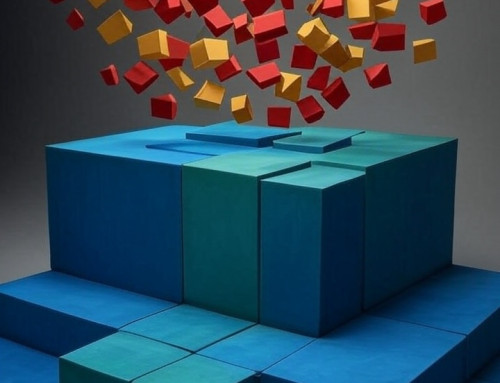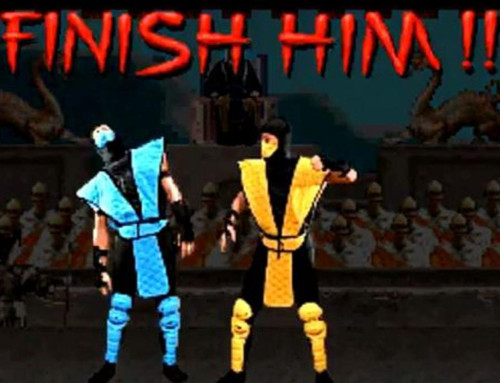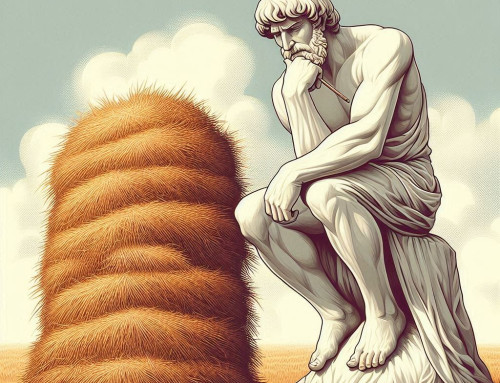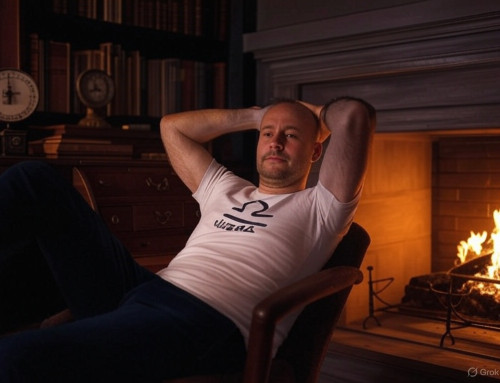It was December of 2003, I was a 3rd Degree Black Belt in Hapkido and had returned to training in Taekwondo to achieve my 1st Degree Black Belt. This was the testing I was scheduled to earn that Taekwondo Black Belt. I was confident. Overly confident. So much so that I had told the Hapkido students I had been training to come watch me test so they can see how it’s done and what’s involved (no ego whatsoever going on there…..right).
I knew my form, I was confident in my sparring and I hadn’t missed my board breaks…ever. However, there was an issue. A month prior, at the national’s tournament, I had torn my hamstring. I was in my early 20s though, so I was clearly indestructible and it wouldn’t impair me. Never mind the fact that I hadn’t been able to lift my leg higher than a foot off the ground for the past month, it was just temporary pain…that black belt was forever.
First up were my forms. There were a couple of kicks with that leg in my forms. I powered through them. I kicked higher than I had kicked in a month, nearly head level…have you ever physically heard a muscle tear and a pelvis pop out of place? It was the sound of me getting my black belt if I didn’t pass out from the pain and could finish my board breaks and sparring. I pushed through my sparring, avoiding any right leg kicks and doing more left leg and hand work. It was good enough. My board breaks though…I was to do a jump front kick at head level to break two boards. I had only practiced the board break with my right leg (the one with the torn hamstring), but no worries…I got this. My leg had stiffened up again and I had no power in it. So I decided to use my left leg. My first attempt…didn’t break. My second attempt, as well, didn’t break. This was my third and final attempt or I don’t pass. Not passing wasn’t an option. I was a third degree in Hapkido, I was too good to fail.
On my third attempt I broke the boards! With joy and unmatched confidence, I proceeded to my back elbow board break to finish the testing and head home with another accomplishment. I wound up, threw everything I had into the boards…but didn’t notice my board holders had shifted and tilted the boards too far forward and I slammed my triceps directly into the top corner of the boards, injuring my triceps and NOT breaking the boards… I was stunned. I was pissed. I couldn’t believe the board holders cost me my black belt and made a fool out of me in front of the students I had brought to testing to, “show them how it’s done”. I waited for the judges to say, “Hey, let’s do that again, I know we normally only do 3 attempts, but clearly this wasn’t your fault and deserve another try, but with better holders this time”. But that response didn’t come. The response was, “Bow out, and come back in a couple months to try again”.
I felt humiliated in front of the students. I thought they’d all leave believing I wasn’t good enough to teach them. I was devastated, I had never failed a testing before. Clearly everything and everyone but myself were to blame over that failed testing. I blamed the board holders. I blamed the judges for not letting me have another chance when it clearly wasn’t my fault. I even blamed the tournament I went to that led to my torn hamstring the month before. If all of these things were different, maybe I would have passed.
The blame game. The only game we play that has no winners, no prizes, and no spectators that enjoy watching. Yet, many of us play it anytime things don’t go our way. It’s a quick, easy way of not feeling responsible for an outcome. The issue is that it never fixes anything. If we place all the blame on someone or something else, then there is nothing we can improve or adjust to get a more desirable outcome.
Shortly after my failed testing, all I did was blame everyone else for my failed testing. If I kept that up, I would have surely failed the next testing as well. Thankfully, I came to my senses and started to look at my own faults in the matter. By recognizing my own faults, I could then make adjustments to improve and make sure I didn’t fail again.
The following week, returning to teach classes and expecting backlash from my failures, something unexpected happened. That testing motivated the students even more. They saw that it doesn’t matter what your rank is or who you are. You can’t expect to receive your next belt just by showing up. You had to earn it.
No one quit, no one thought less of me as a student or teacher. None of that happened as they were all too busy working harder to make sure they didn’t fail their next testing as well. There were a couple realizations from this. First, it was one of the best things that could have happened to me. My ego was growing far too big and it needed to be deflated in order to progress. It was a great learning experience for me and the students to understand that you shouldn’t be too confident and that you need to train heavily no matter what (I clearly slacked in my training at the time). Secondly, I realized that blaming someone else for that failure was ridiculous as I had more control over my performance than they did. I could have trained harder and practiced more with my left leg. I could have paid more attention to the boards on my elbow breaks and saw that they were tilted too far and adjusted them. I could have prepped better at the tournament by not stretching so damn long. I could have gone to the chiropractor beforehand to adjust my pelvis as it was the reason I tore my hamstring (it popped during my stretches and pulled sharply on the muscle which lead to the tear). So yes, there were a few things out of my control that didn’t go right, but there were FAR more things within my control that I could have done better.
In the years since, I’ve dramatically altered my mindset when it comes to recognizing my own mistakes and my involvement in my failures, as well as my success. It’s easy to point the blame at another person or situation that leads to an undesirable outcome. It’s also easy to go in the other direction and award someone else as the reason for your successes. Neither are overly accurate. The fact remains, though, that even when you include all outside sources that may impact our lives, that WE, ourselves, still have the most impact and involvement. We can’t ignore these outside mishaps, but we have to understand that there is little to nothing we can do about them. What we can do though is adjust our own actions and reactions to life’s events.
I see on a regular basis where students and clients have made mistakes in their training that has led to undesirable outcomes. I’ve had clients in the past lie to me and themselves about their diet or how often they exercise, only to blame me, the program, or even the science of weight loss on their lack of results. I’m sorry, but you’re overweight because you ate too many calories and didn’t burn enough through exercise, not because you have a slow metabolism…at the age of 23… And no, that martial arts technique isn’t, “impossible for you because your body wasn’t built that way”, it’s impossible for you because you haven’t put in enough training time to perfect it. Yes, some have to train longer and harder than others for some techniques, but that doesn’t mean it’s impossible. It’s just difficult. It’s not meant to be easy. If it was easy, everyone would be doing it and everyone would be a black belt, or everyone would be thin, or accepted into Harvard.
It’s easy to place the blame on someone or something else. It relieves us of feeling like WE failed. Take it from a man who’s spent more than his fair share of time blaming outside issues for his own shortcomings. It does nothing but lead you to further failures. It doesn’t present solutions to problems. It doesn’t make you feel better and it doesn’t adjust behavior to lead to success in the future. It only leads to frustration and anxiety over constant feelings of being out of control of the circumstances.
I leave you with a story of an incident that occurred with my youth students not long ago that I feel presents this blame game quite well, and how all future negative outcomes could have been avoided if the blame hadn’t been thrown around.
I let my after-school youth students have “play time” in which they have mostly free reign over what they do for about 30 minutes. They can decide what games they play, how they play, who they interact with, and so on. The adults don’t interject, step in or dictate anything unless we foresee a major incident coming or an argument cannot be settled between the students. I feel it’s important for this age group to deal with their own issues and test the boundaries within a safe environment in order to learn how to better interact with others and deal with problems.
During this play time, a group of students were playing a version of dodge-ball one day. One of the students, age 10, (we’ll call him “Luke”) felt one of the other students, age 6, (we’ll call him “Timmy”) was cheating. Luke’s first reaction was to try and physically pull the ball away from Timmy due to his cheating. He pulled violently at the ball, jerking Timmy around momentarily until he let go of the ball and began to cry due to the shock of the violent nature, but was unharmed. The other students scolded Luke and told him to go away while comforting Timmy. This is when we, the adults, stepped in. I showed Luke the video of what he had done through the security cameras and gave him a suitable punishment.
Sadly, Luke refused to believe it was his fault and constantly blamed Timmy. Even when writing an apology letter to Timmy, as per his punishment, it was riddled with placing the blame on Timmy. Upon reading this “apology”, we had a discussion. I noted how his actions of blaming someone else and reacting poorly not only hurt himself due to the punishment and having to tell his parents (who would also proceed to punish him), but led the other students to supporting Timmy even though they too believed he was cheating at the time. I also stated how the entire situation could have been dramatically different if proper actions were taken. Since most of the students partaking in the game felt that Timmy was cheating, as I explained to Luke, if he simply would have told Timmy that he was not allowed to play anymore due to his cheating, Luke could have continued on playing, not gotten punished, and Timmy would have been essentially punished by his classmates by not being allowed to play anymore. Instead, due to his knee jerk reaction, it was Luke that was punished while Timmy was comforted and supported the rest of the play time with no punishment.
Sadly, Luke still refused to stop playing the blame game, and due to this, he repeated these actions the very next week as soon as he was allowed back into playtime from his week of punishment. Since he saw no blame in himself, he never adjusted his behavior or reactions, and therefore the exact same outcome was the result. He accused yet another child of cheating, and then proceeded to push a heavy bag into the other student, and was promptly punished yet again. Unfortunately, at the time of writing this, Luke still holds onto resentment and anger due to his blame of others for his punishment. Due to this constant blaming of others he is continuously punished due to his actions of anger towards those he blames while absolving himself from any wrong doing. He rarely is allowed to participate in play time and has been held back at rank promotions more than any other student I’ve ever taught, all due to his behavior.
It is only with time that I hope he begins to understand the error in his ways and that the seeds have been planted for future understanding, as I know it will be a very difficult and frustrating life if he doesn’t come to the realization that his tendency to blame others for his difficulties is the culprit to his suffering. It’s a lesson we all must learn, some of us learned it early on, some later on, some….will never learn, and it’s quite unfortunate.
Self-blame is not an easy thing to do. For many of us, it’s completely against our nature to accept we’re at fault for anything. However, the sooner we can get past this uneasy feeling and the knocking down of our ego, the sooner we can make adjustments to better improve our lives.







Beautiful.
I am responsible for my own actions and behaviors.
This is truly how emotional and mature growth occurs.
Thank you.